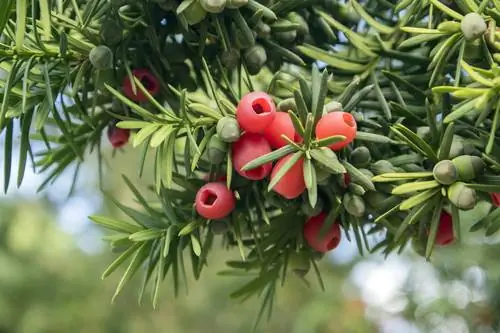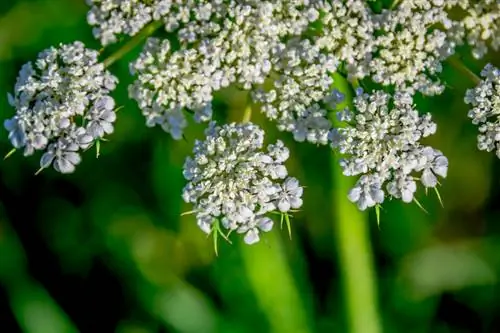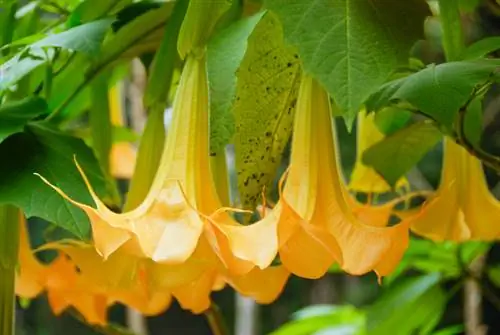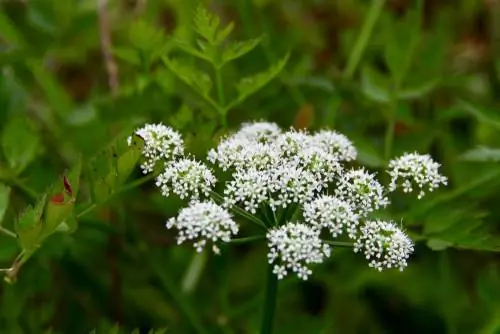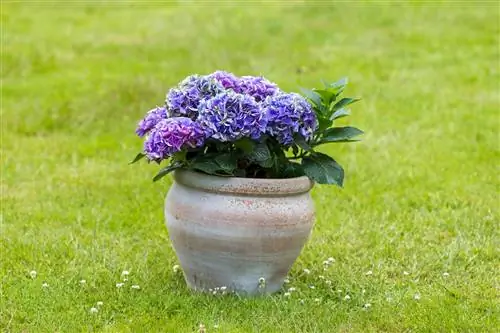- Author admin leonars@hobbygardeners.com.
- Public 2023-12-16 16:46.
- Last modified 2025-01-23 11:21.
Conifers are rich in species and are often cultivated as hedge plants due to their dense growth. However, alternatives to the conifer hedge should be sought when children and pets are around, as many conifers are poisonous.
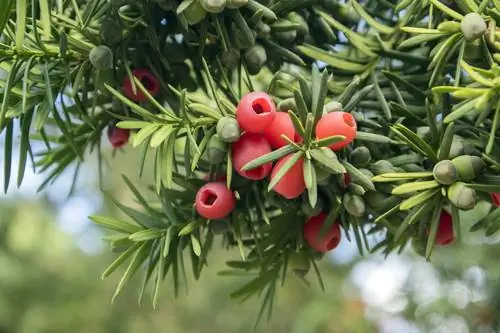
Are conifers poisonous?
Some types of conifers, such as yew, thuja or cypress, are poisonous and should therefore not be planted near children and pets. However, spruce, Japanese larch and sequoia are considered relatively non-toxic or only slightly toxic.
Which types of conifers are popular?
From the multitude of conifer species, the following varieties are among the most popular:
- Yew
- Spruce
- Japanese larch
- Thuja
- Cypress
- Juniper
- Sequoia tree
The Yew Tree
Yews are robust and evergreen coniferous trees or shrubs that are easy to care for and tolerate pruning. However, they are highly poisonous, especially the red fruits, which attract children.
The Spruce
Spruce trees form a dense hedge and offer good nesting opportunities for birds. Because they are non-toxic, they are also suitable for planting in playgrounds.
The Japanese larch
If you let it grow, it will become a stately tree up to 30 m high. Since it is non-toxic, it is ideal as a hedge around children.
The Thuja
It is one of the most popular hedge plants due to its dense growth, ability to cut and winter hardiness. However, it is poisonous in all parts and should not be kept near children or pets.
Cypresses
They are suitable for tall, dense hedges and can tolerate vigorous pruning. However, due to their toxic content, cypress trees are not a good choice if there are children or pets nearby.
The Juniper
It is undemanding, easy to care for and robust. However, its berries contain a small amount of poison, which can cause symptoms of poisoning in sensitive people or children. A certain amount of caution is required when planting juniper.
The Sequoia Tree
It is usually found as a large tree in public areas. Since its needles are only slightly poisonous and symptoms of poisoning can only occur when larger quantities are consumed, planting it near children is not dangerous. However, pets should not eat sequoia greens.

